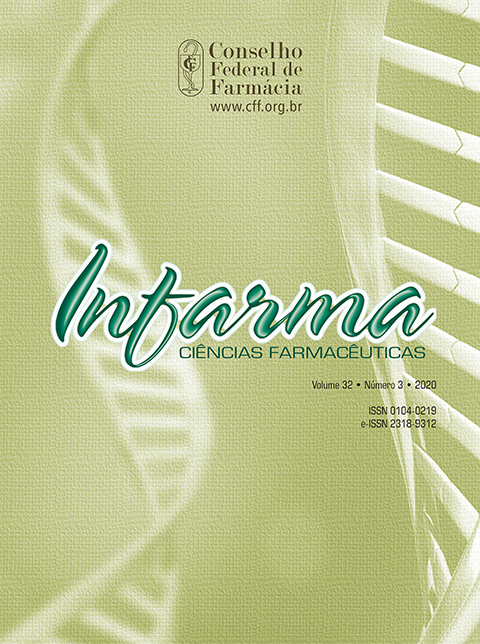DYSPHAGIA IN THE ELDERLY AND ITS IMPLICATIONS IN THE ADMINISTRATION OF ORAL DOSAGE FORMS
DOI:
https://doi.org/10.14450/2318-9312.v32.e3.a2020.pp232-242Keywords:
dysphagia, elderly, drug, health personnelAbstract
Dysphagia is defi ned as the diffi culty in swallowing, which aff ects food intake, but also medication, being more prevalent at older ages. To get around this diffi culty, the elderly resort to changing the physical form of the medication, resulting in consequences for themselves and therapy, such as the development of adverse reactions and toxicity. This work sought to identify the main diffi culties in the administration of solid oral dosage forms in individuals over 60 years of age, and their implications for adherence to therapy. An exploratory study was carried out using a questionnaire, applied through an interview, between December 2016 and May 2017. We investigated 102 individuals over 60 years of age. About half of the interviewees have diffi culties in swallowing drugs with solid oral pharmaceutical form, with size being the characteristic that most aff ects this diffi culty, often leading to changes in the physical form of the medication and having implications for adherence to therapy.
Downloads
Published
How to Cite
Issue
Section
License
Authors who publish in this journal agree to the following terms:
- Authors retain the copyright and grant the journal the right of first publication, with the work simultaneously licensed under the Licença Creative Commons Attribution which allows the sharing of work with acknowledgment of authorship and initial publication in this journal.
- Authors are authorized to take additional contracts separately, for non-exclusive distribution of the version of the work published in this journal (e.g. publish in institutional repository or as a book chapter), with acknowledgment of authorship and initial publication in this journal.
- Authors are allowed and encouraged to publish and distribute their work online (e.g. in institutional repositories or on their personal page) at any point before or during the editorial process, as this can generate productive changes as well as increase the impact and Citation of published work (See O Efeito do Acesso Livre ).


